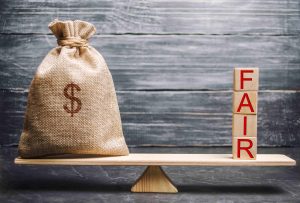As a business buyer, the number that will be at the center of your attention throughout the business transaction is the purchase price.
How much are you willing to pay for the business, and how does the seller arrive at their asking price?
These are important considerations, and as you progress through the due diligence phase, you will be deciding if you think the price is fair. What parts of a business will you need to consider when determining the price you are wiling to pay?
Cash Flow and Contracts
In order to determine the cash flow of the business you will need to examine financial statements, sales records, and tax returns for the last few years.
This is a great time to enlist the help of your business broker and possibly an accountant who is familiar with analyzing business transactions. Both will have the experience necessary to determine what the records really show in terms of how the business has been doing. It is impossible to gauge the health of a business by simply looking at the bottom line of tax returns – more analysis will be necessary.
You can also have your business broker determine the operating ratios of the business, as these ratios can be a good indicator to compare against industry standards.
Examine any and all contracts and agreements the business currently has. These include purchase agreements, leases, contractor agreements, and any other legal instruments.
Inventory
What is the inventory? The inventory includes any materials and products that are used for resale or for client services.
It is very important that you personally and a trusted and qualified representative (like your business broker) are present for and participate in any inventory examination.
You will need to know the inventory status in order to give it a proper evaluation. You should also request the inventory counts from the end of the previous fiscal year.
You may need to have the inventory appraised if you are unable to properly appraise it yourself. The inventory counts as a hard asset, so you will need to know what dollar value to assign to it.
An important point to keep in mind is the value of the inventory is something that can be negotiated. If the inventory is incompatible with your future target market, or in poor condition – these are points to be brought up during negotiations.
Equipment and Furnishings
These parts of the business are important in terms of value because they are considered hard assets, so you will need to know what furnishings, equipment (like kitchen appliances in a restaurant), and vehicles are part of the deal.
For any equipment you will need the name and model number for each piece, the present condition, the value when purchased, the current value, and whether the equipment was leased or bought.
You will also need to consider what kinds of changes and improvements to the building will be needed in order to suit your future business plan. Find out what the seller invested in terms of maintenance and leasehold improvements so you will know what it will take to keep the facility in good condition.
The price of a business may change based on the economic climate or on the motivation of the seller, but in all reality the price of a business is what a buyer is willing to pay for it. Take a good look at the inventory and other hard assets, along with the cash flow and records of the business before you head to the negotiation table with a number you consider fair.
Do you have more questions about how you as a buyer can determine if a price is fair? Would you like to know more about the importance of cash flow? Ask us! Please feel free to leave any questions or comments and we would be happy to help.
Michael Monnot
941.518.7138
Mike@InfinityBusinessBrokers.com
12995 South Cleveland Avenue, Suite 249
Fort Myers, FL 33907
www.InfinityBusinessBrokers.com








